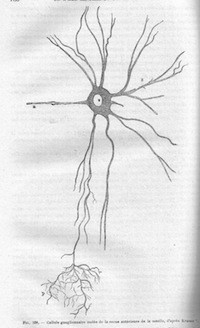Number of results 3
for gluten
15/01/2015 - A gluten immune reaction in everyone
 A research study shows that the innate immune system reacts against gluten in both celiac and non-celiac people producing interleukins, a kind of inflammatory substances. That means that we all are indeed sensitive to gluten.
A research study shows that the innate immune system reacts against gluten in both celiac and non-celiac people producing interleukins, a kind of inflammatory substances. That means that we all are indeed sensitive to gluten.The difference between celiac and non-celiac people remains in the adaptative immune system, that is to say, the antibodies produced against gluten.
In other studies, hundreds of diseases have been linked to gluten sensitivity.
25/01/2013 - 10 Reasons to Avoid Gluten and Modern Cereals
.jpg)
When we talk about gluten-free products we think rather in wheat, barley and rye, because the protein that they contain is the origin of celiac disease. But in fact, the definition of gluten is "a substance present in cereal grains, especially wheat, that is responsible for the elastic texture of dough" (Oxford dictionary), that is to say, that all grains contain gluten in more or less quantity.
But is that the gluten in all kind of grains as bad?
Can the gluten represent a problem not only to celiac persons but also others?
What is gluten sensitivity?
08/11/2012 - The connection between gluten and casein intolerance and autism, hyperactivity and other behavioral disorders
 According to research studies conducted by Professor Karl Reichelt at the University of Oslo, behavioral disorders and various neurological diseases stem from an intolerance to cereals containing gluten and milk casein.
According to research studies conducted by Professor Karl Reichelt at the University of Oslo, behavioral disorders and various neurological diseases stem from an intolerance to cereals containing gluten and milk casein.Autism, schizophrenia, epilepsy, obsessive-compulsive disorder, school problems, depression ... numerous diseases that increasingly affect our children might be caused by gluten and casein intolerance. By using the urinary peptide analysis, developed by Professor Karl Reichelt, you can tell if the ingested gluten and casein interfere with the brain functions. What is the urinary peptide-test?

 Gemma Calzada is a Holistic Nutritionist Ph.D. and a certified GAPS practitioner, accredited by ASCA. Her mission is to improve health through nutrition and to help people suffering from a dietary intolerance to live happily.
Gemma Calzada is a Holistic Nutritionist Ph.D. and a certified GAPS practitioner, accredited by ASCA. Her mission is to improve health through nutrition and to help people suffering from a dietary intolerance to live happily. 
